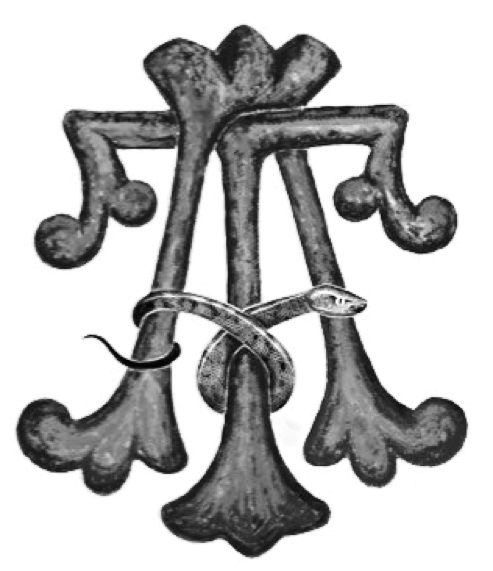Apothecary Glossary
A
Abstracts - concentrated powders from an alcoholic solution of a drug
Alkalies - used to neutralize acids
Alteratives - used to change and correct a morbid condition of the organs and increase metabolism
Analgesics - used to relieve pain
Anaphrodisiacs - used to diminish sexual drive
Anhidrotics - an agent that suppresses perspiration
Anodynes - see Analgesics
Antagonists - muscles that oppose each other in their physiologic action
Antakalines - increase acidity in stomach or urine
Anthelmintics - used to destroy or expel worms
Anthilithics - used to reduce the tendency to form urinary calculi
Antiperiodics - used to prevent the periodic return of fever
Antipyretics - used to reduce and control temperature in fever
Antizymotics - arrest fermentation
Aperients - laxatives; promote intestinal evacuation
Aphrodisiacs - used to enhance sexual drive
Aromatics - used to stimulate or aide in removal of flatus from stomach and intestine
B
Balm - any soothing medicinal pallative
Balsams - resinous substances containing benzoic or cinnamic acids or esters
C
Cachets - thin rice flour wafers prepared for the administration of powders
Carminative - see Aromatics
Cataplasm - see Poultices
Catholicon - a universal remedy or panacea
Caustics - used to destroy tissues to which they are applied
Cerates - dressings with a lard or petroleum base for desired consistency
Cholagogues - used to increase bile secretion
Clyster - an enema; the injection of a liquid into the rectum for cleansing, bowel evacuation, or nourishment
Collyrium - eye lotion
Confections - sugary solids prepared by incorporating a medicine with finely powdered sugar
Conserves - see Confections
Cordials - related to elixirs but with higher alcoholic content and flavored for use
Counter-Irritants - used provoke irritation and inflammation to the parts to which they are applied
D
Decoctions - liquid preparations made by boiling plant materials with water
Deliriants - used to produce delirium
Demulcents - used to protect mucous membranes from irritation
Desicants - used to reduce secretions and discharges from wounds and ulcers
Diaphoretics - used to produce sweating
Diuretics - used to promote production of urine
E
Ecbolics - used to promote contraction of the gravid uterus
Electuaries - another name for confections
Elixirs - sweetened aromatic alcoholic preparations used as adjuvant flavors
Embrocation - another name for liniment
Emenagogues - used to restore and maintain healthy menses
Emetics - used to provoke emesis, or vomiting
Emollients - used to protect sensitive skin surfaces to allay irritations
Emulsions - aqueous liquids with suspended oil by means of gum, egg yolk, or other viscus
Essences - alcoholic solution of volatile oils
Essential Oils - same as volatile oils
Expectorants - used to promote secretion of bronchial mucous
F
Febrifuges - used to resolve fever, same as antipyretic
Fluid Extracts - aqueous and alcoholic preparations of uniform and defined strength via percolation
G
Galactagogues - used t increase breast lactation
Glycerins - British name for glycerites
Glycerites - mixture of medicinal substance with glycerine
Gum Resins - natural exudatations from plants such as myrrh and asafetida
H
Hematinics - tonics that improve the quality of the blood
I
Infusions - liquid preparations made by treating plant materials with either hot or cold water
Irritants - when applied to the skin produce a degree of vascular excitement
J
K
L
Lictuses - confections imbibed by sipping or slow swallowing to coat the throat
Liniments - solutions intended for external application by rubbing of the skin
Lochochs - same as lictuses
Lotions - aqueous preparations containing insoluble suspended matter for external use
Lozenges - medication suitable for dissolving in the mouth to treat the throat and bronchi
M
Magmas - related to mixtures containing suspended insoluble's requiring agitation before use
Masses - preliminary preparation of materials for making pills - “pill mass.”
Milk - same as magma
Mixture - aqueous preparation containing suspended insolubles and intended for internal use
N
Nervine - acts upon the nervous system
O
Ointments - fatty preparations, softer than cerates, for application to the skin by rubbing
Oleates - mainly liquid preparations of dissolved alkaloids in oleic acid and intended for topical use
Oleoresins - mixtures of volatile oils and resin, generally obtained by incising the bark
P
Pastes - ointment-like mixture of starch, dextrin, or zinc oxide with petrolatum and an antiseptic or astringent
Pectorals - used t relieve diseases of the chest
Petroxolins - suspension of a medicinal with ammonia soap and petrolatum for external use
Physic - medicine
Plasters - cloths impregnated with medicinal agents that are applied and adhere to the skin
Poultices - soft mixture of medicinal powders with oily or watery fluids and applied hot to the skin to exert an emollient, relaxing or counter-irritant
Purgatives - used t hasten intestinal evacuations
Pustulants - a counter-irritant that produces pustules
Q
R
Refrigerants - used to allay thirst and cool the skin
Restorative - restores health and vigor
Rubefacient - counter-irritant that produces redness and warmth
S
Soporific - induces sleep, a hypnotic
Species - single herb or mixture of same intended for the making of medicinal teas
Spirits - alcoholic solutions of essences (volatile substances)
Stomachics - used to increase appetite and promote gastric digestion
Sudorifics - powerful diaphoretics
Syrups - concentrated solution of sugar in water with medicinal agent
T
Tinctures - liquid preparation derived from percolation with alcohol of a non-volatile substance
Troche - British name for lozenge
U
V
Vermicide - when anthelmintics destroys worms it is called a vermicide
Vermifuge - when anthelmintics expell worms it is called a vermifuge
Vesicant - when a counter-irritant raises a vesicle or blister
Volatile Oils - also called ‘essential oils’, derived from the odorous principles of that plant
W
Wafers - the rice flour discs used to make ‘cachets’.

